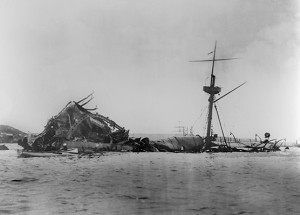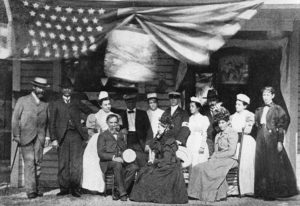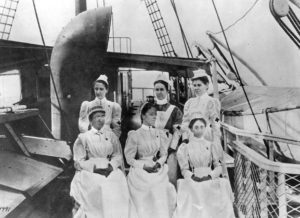More than 100 years ago on February 15, the USS Maine exploded in Cuba’s Havana Harbor. The explosion, resulting in over 200 deaths, served as a catalyst for the Spanish American War of 1898. Here are a few interesting things you didn’t know about our response:

Clara Barton’s visit on board the USS Maine
Clara was in Cuba when the USS Maine exploded, providing impartial relief to suffering people whether they were Cuban, Spanish, or American. Clara dined on board the ship just days before the explosion.
Recruiting Hundreds of Nurses to Support Troops
The U.S. government signed the 1864 Geneva Convention in 1882, providing the mandate for the Red Cross to support the military. In 1898, the Red Cross, a fairly young organization at the time, set out to assist the troops who went off to fight the Spanish in Cuba and the Philippines. The Red Cross recruited nurses to serve with the troops, despite the Army surgeon general’s reluctance to allow women to care for the wounded. The Red Cross soon overcame the obstacles.
On June 6, 1898, Secretary of War R.A. Alger sent Clara a letter telling her that the “tender of services of the American National Red Cross . . . for medical and hospital work as auxiliary to the hospital service of the Army of the United States, is accepted” and adding that her workers would be “subject to orders according to the rules and discipline of war, as provided by the 63 Articles of War.” Within a year, the Red Cross had recruited some 700 nurses.
Clara was disheartened to see that camp conditions had not changed significantly since the Civil War, including treatment of the wounded. The soldiers wore winter weather uniforms in the tropical summer heat and countless numbers fell ill to yellow fever, typhoid fever and dysentery. Medical officers credited the Red Cross with helping them sustain their operations under very difficult circumstances.

To this day, the Red Cross continues its proud tradition of providing service to the U.S. military, veterans and their families at home and abroad through on-base support, emergency communications and more. Learn more about how we support our military today here.

